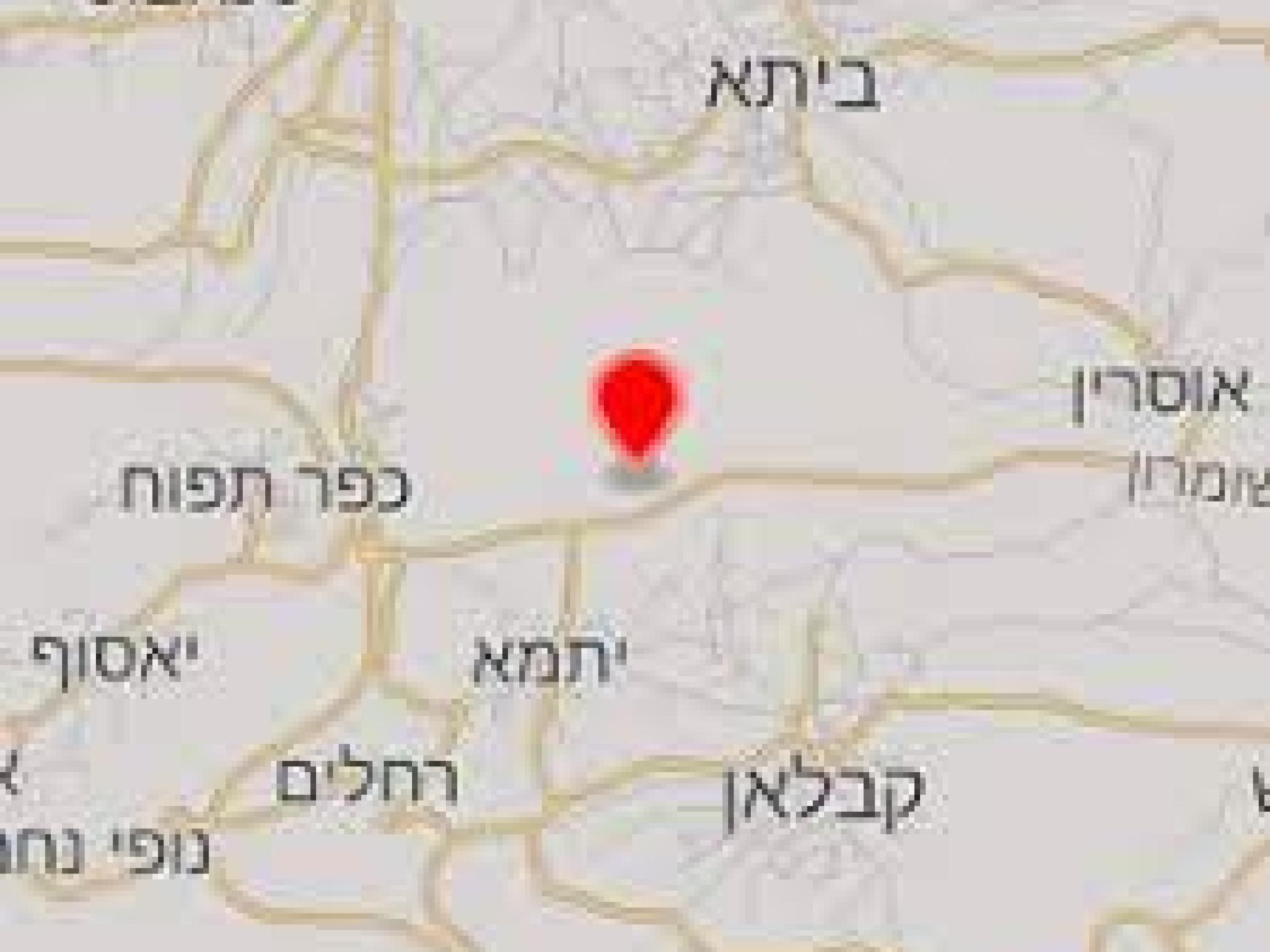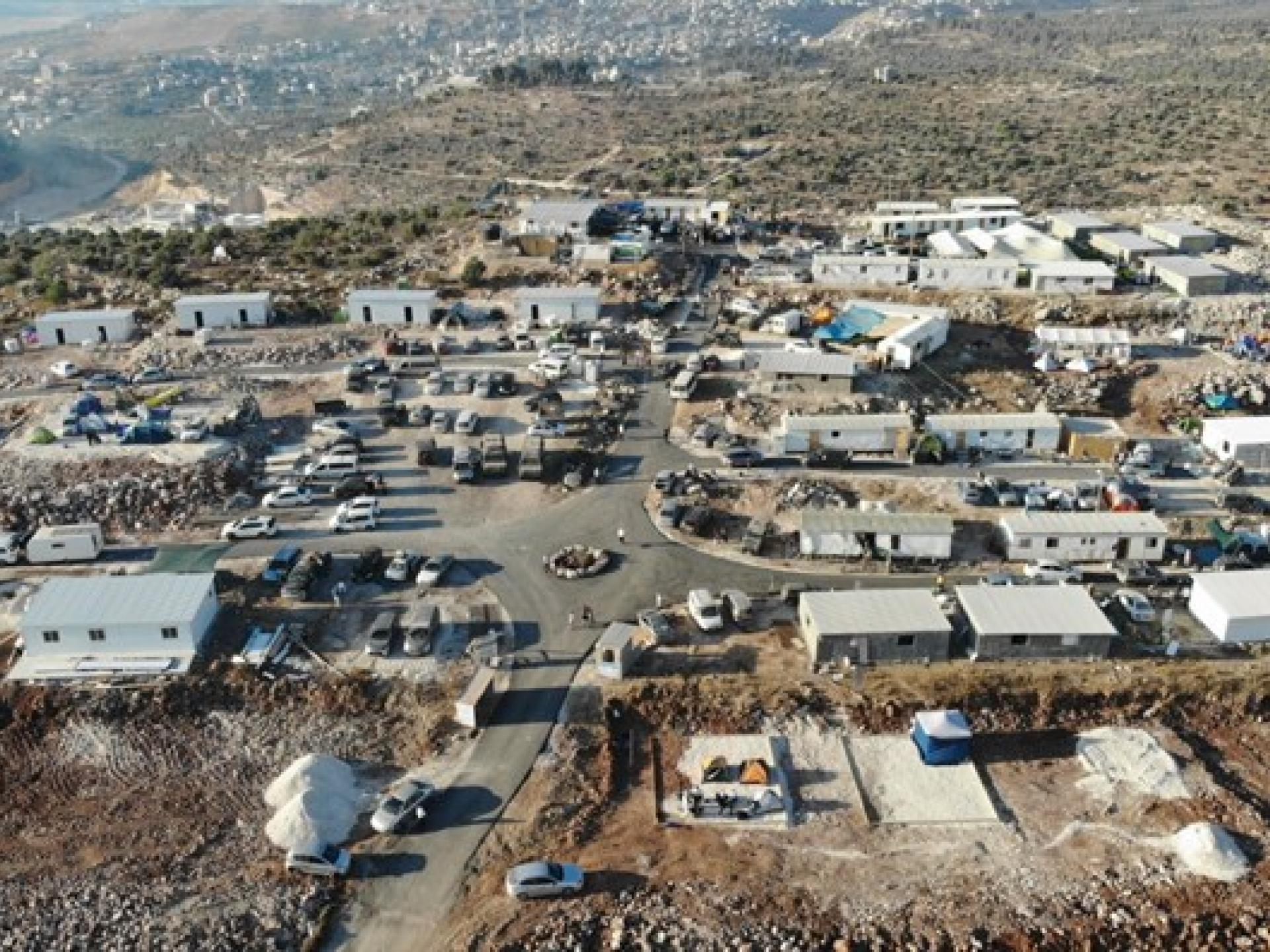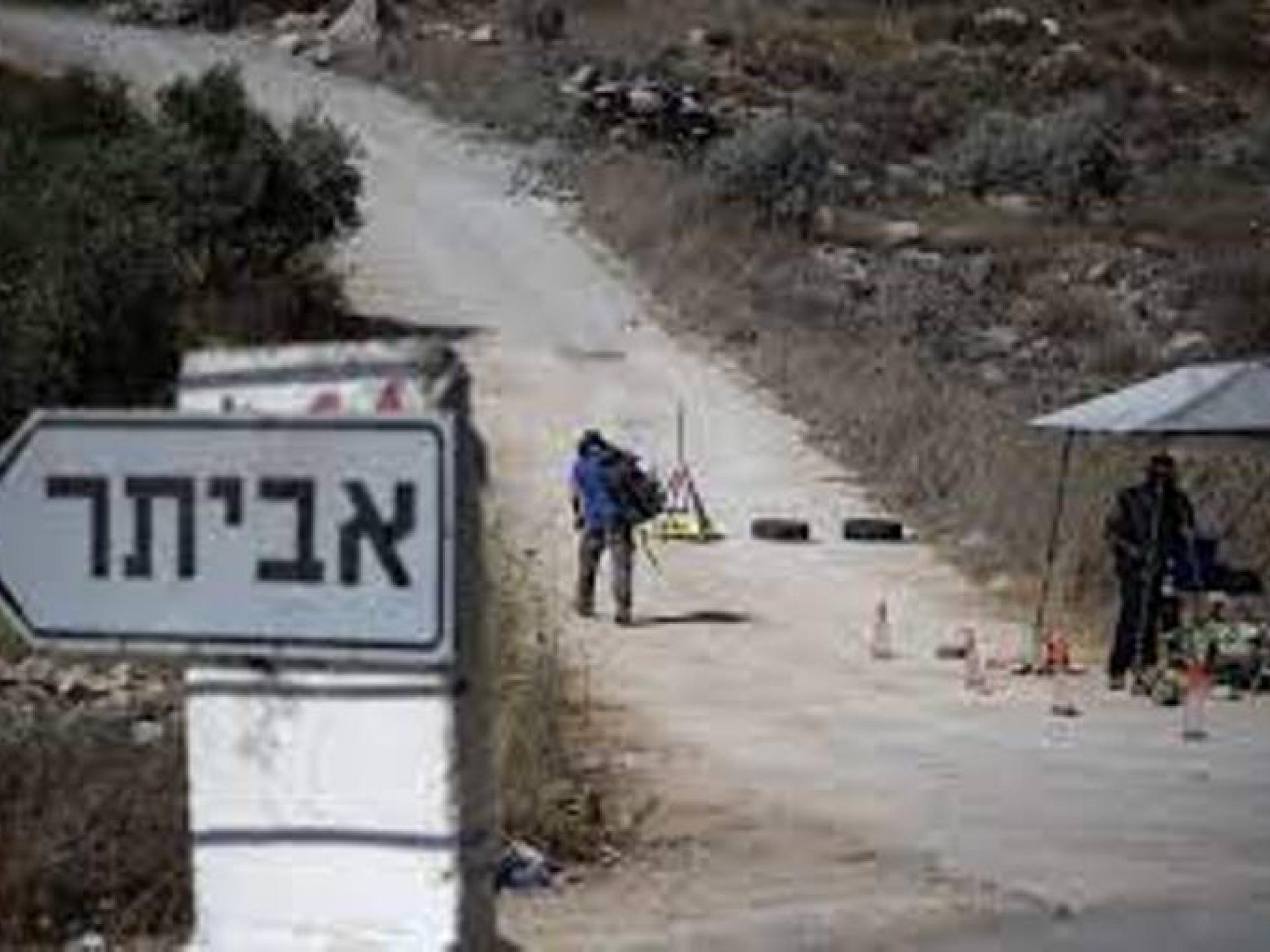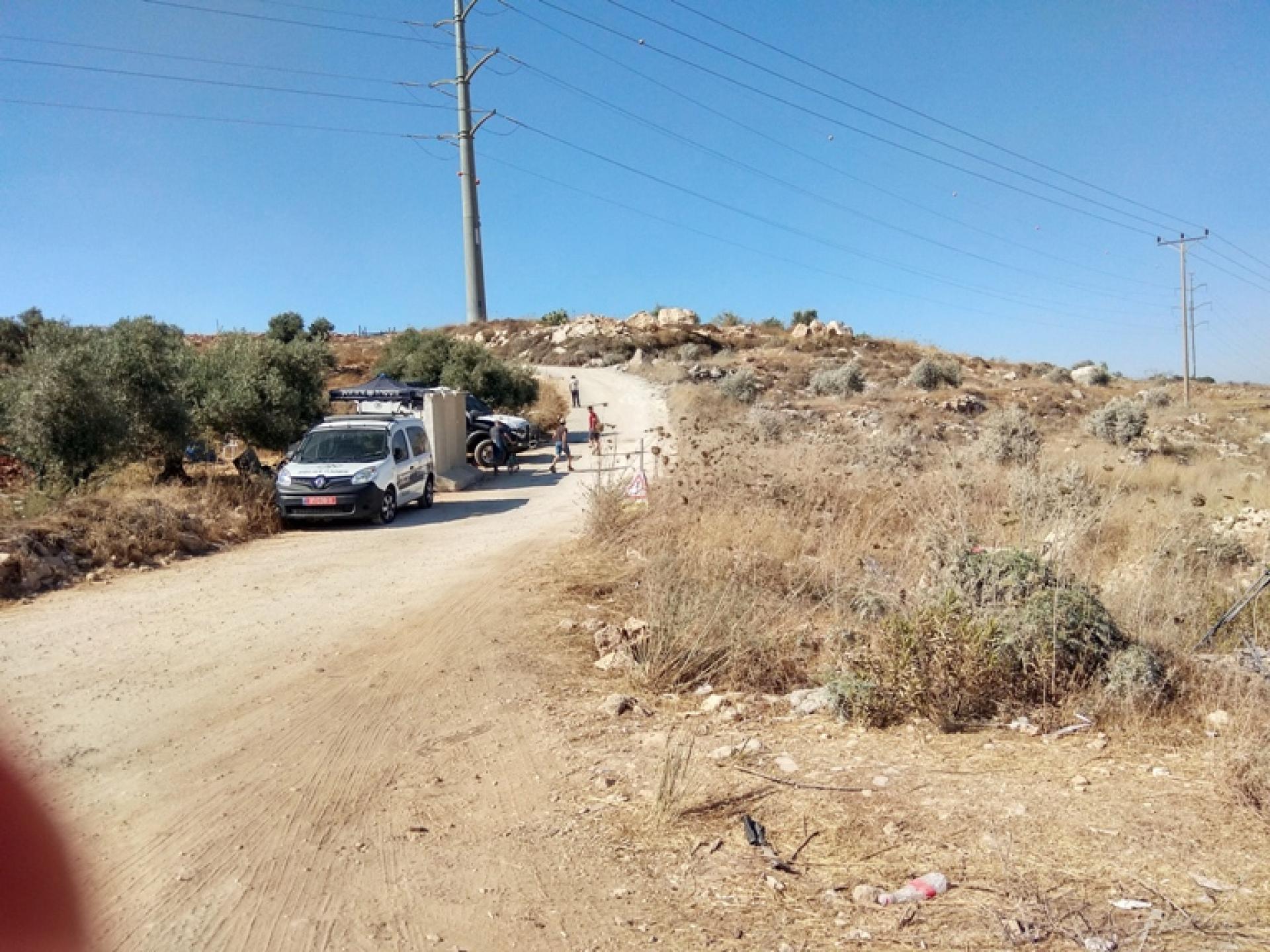Beita alFoqa and the illegal outpost Eviatar
Background
The outpost, Eviatar, was erected one and a half months ago, at the beginning of May, after the murder of Yehuda Guetta, at the Tapuah Junction. It was built 2 kilometers east of highway #505, north of Beita el-Foqa, on lands belonging to the residents of the village.
8 years after the murder of Eviator Borovski, there was an attempt to build an outpost at the Tapuah Junction, but the attempt was unsuccessful. This time, under the protection of the chaos of Jerusalem Day and Gaza, the violence in the cities and the new government, they fulfilled their intention. Within one month, they built about 50 buildings, including a synagogue, kindergarten and more. At the same time, they submitted a petition against the expected dismissal order, that this is state land, since it hasn't been worked for 10 years, therefore the outpost was legal. The "pioneers" were full of pride that they managed to "settle the land". They had only one complaint: why were there 80 "illegal" houses belonging to Palestinians only a kilometer away from them?? Netanyahu delayed the dismissal order, on the grounds that there must be permission from the Prime Minister and this permission had not been issued by him.
By now, a road has already been paved up to the outpost, and there are about 50 residential structures, a kindergarten and a synagogue. A few weeks ago, we saw, in a video of IDF soldiers, that they were helping in the erection of the buildings. All this in the shadow of an eviction order.
Our Visit
From the beginning, we intended to enter Beita and meet with the head of the local council. We knew that a 15 year old boy had been killed in a confrontation with the soldiers. In a conversation with Munir, we were told that there was no point in this.l The head of the local council doesn't live in the village and everything is now in the hands of groups of angry youths who are organizing things. Every day, they burn tires, throw stones and fight with the soldiers. They are not ready to speak to any Israelis. A reporter from TV Channel 12 wanted to interview them, but they refused. So we decided to remain at the entrance to the village and talk with passers-by, in order to get a picture of what is going on.
When we got to Beita, we discovered that the army had blocked the entrance for vehicles with cement blocks, and the residents could only enter and exit the village by foot. On the north, behind the last house of Beita, there was black smoke (apparently from the burning tires). A Palestinian ambulance came to the entrance and waited, as usual, to collect people injured in the confrontations.
A resident who talked with us at the entrance to the village, told us that, at the beginning of the conflict, the soldiers manned the entrance. However, a few days ago, they blocked the entrance with cement blocks and moved to the center of the village and the area of the confrontations near the outpost. The family of this resident held land on which the outpost had been built.
We continued across the road which climbs to Eviatar, and a kilometer east of the Tapuah Junction, near Yatma and Kabalan. The road was already paved, vehicles were going in and out. At the entrance, there was a police booth and police vehicles. It was hard to discern the buildings of the outpost. We got out of the car in order to photograph. Youths were running around on the hill above us, screaming "No photographing! No photography!" A policeman with peyot and a beard smiled at the action and approached us to ask what we wanted. We explained that the outpost had been in the news and we wanted to see it. "You can go up", he said to us with a big smile. "However, it isn't a good idea, you know why. Now there are just temporary buildings, but obviously it will be very pleasant soon!"
It was written in the media that the police blockade was positioned there in order to prevent further illegal building. However, it became clear that it was erected in order to protect the outlaws.
To our satisfaction, it was published today (21.6.21) that the central command officer, Tamir Yadai and the legal consultant for Judea and Samaria, sub-lieutenant (?) Lahat Shemesh, had summarily dismissed the petition of the settlers and pointed out their transparent lies. This land had never been declared state land, and not as survey land. Photographs show that the lands had been worked up to the 80's and the work was stopped because an army base had been built on them, by means of a temporary order only.
We remained with questions, connected one to the other:
Until when will these confrontations with the soldiers continue, which are costing blood?
Will the outpost be evicted by the same soldiers who helped to build it or, by then, will these soldiers already have been released from duty?
When will these lands return to their owners?




